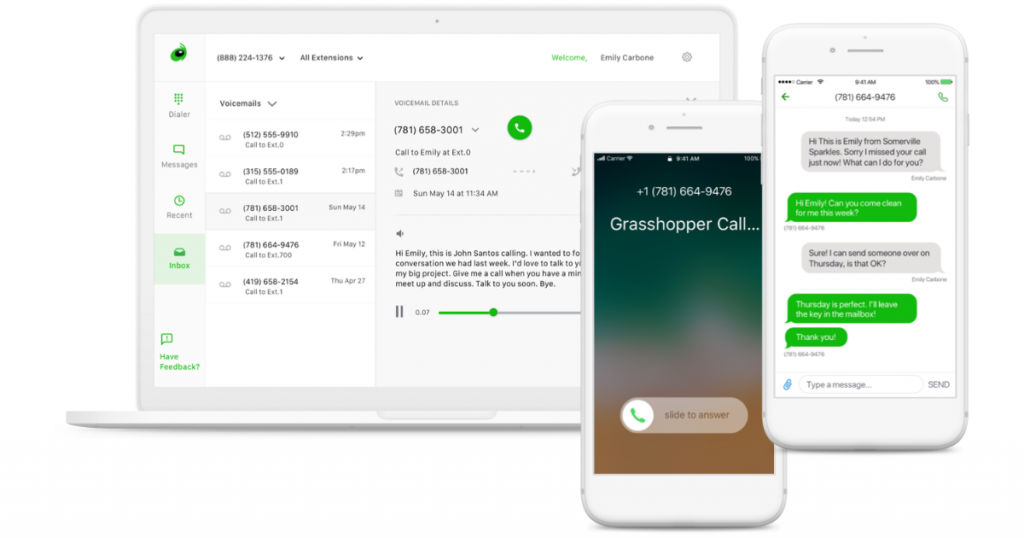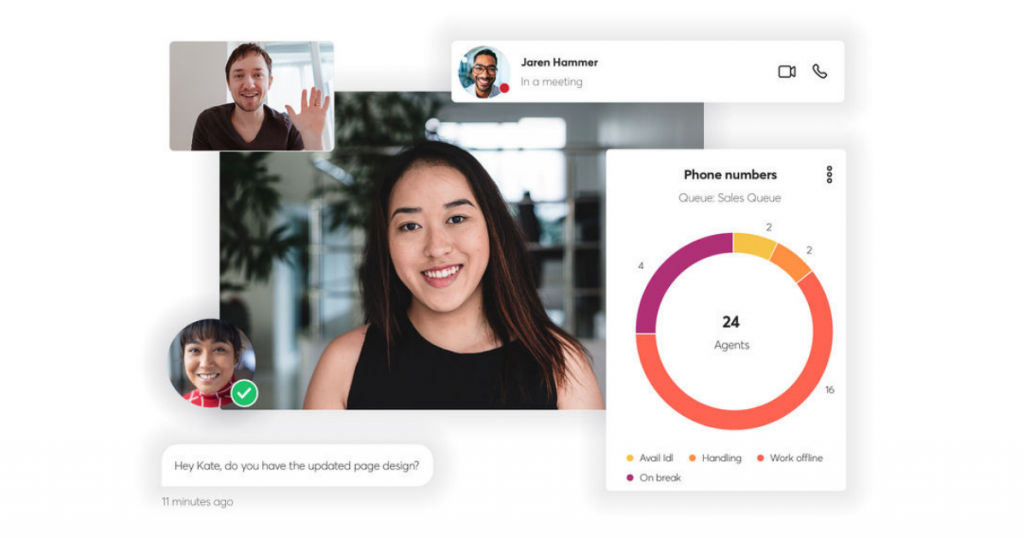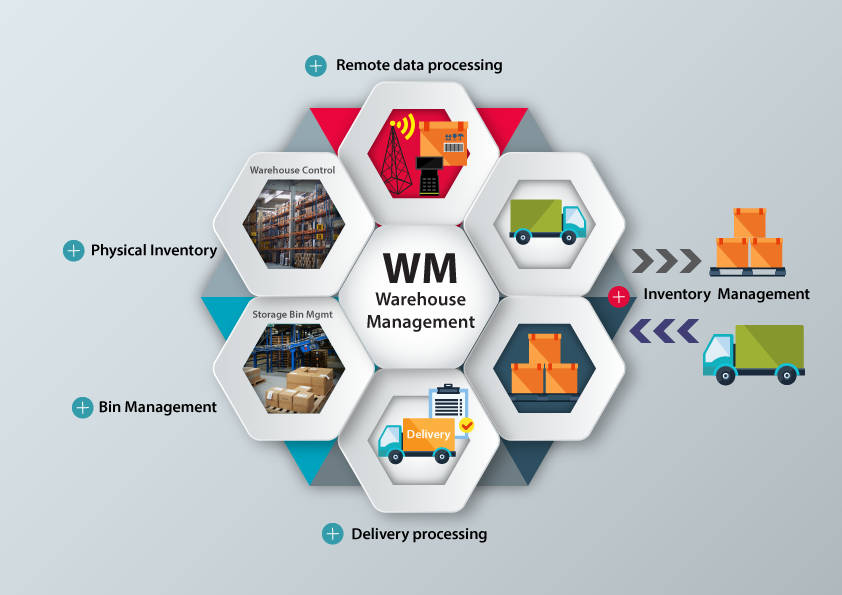
With the popularity of AI-based operations and unified communications, the pressure on the telecom industry has increased multi-fold. This has urged the need for a flexible alternative that can offer advanced mobility and global reach. VoIP has emerged as one such technology that is taking over the telecom industry with its advanced features. With over 350 million users, it has surpassed traditional means of telecommunication through competitive pricing, easy-to-use setup, mobility, and accessibility. According to a recent report, the VoIP market is expected to reach $183.7 billion by 2027 .
VoIP has made communication easy with its global reach. It is playing an important role in achieving improved business prospects as well as personal connections. For example, in business it has prompted new opportunities and collaboration whereas in personal use it has helped families to connect with their loved ones across the world irrespective of their location.
In this article, we will discuss the essential aspects of VoIP services that every user should know before implementing them. We will also review the 5 best VoIP service providers best-suited for residential and business use. Let’s start with the concept of VoIP and its providers.
Table of Contents
What is VoIP?
VoIP stands for Voice over Internet Protocol. It is a technology that is used to perform telecommunication and multimedia sessions using IP networks. VoIP services can be availed from VoIP service providers. These providers are separate business entities that provide VoIP services directly to consumers and businesses. They offer subscription plans that can be renewed monthly or annually based on the requirement. VoIP services are usually a part of SaaS models, wherein it is provided as a service rather than a product.
How does VoIP work?
VoIP operates on a set of protocols including Real-time Transport Protocol or RTP for performing media streams and Session Initialization Protocol or SIP. It further imitates phone functions like dialing, voice-calling, messaging, and initiating transmissions.
For signal transmission, VoIP breaks audio data like a voice into small packets, also known as IP packets, and travels it through the internet. Once these packets reach the destination, these IP packets are reconstructed and delivered as the person’s voice as received in regular phone calls. It is a fast process that happens in real-time and is often unnoticeable.
How is VoIP different from traditional communication services?

The services offered by VoIP providers include broadband telephony, internet telephony, and broadband phone services like voice call, voice-messaging, fax, and SMS, which is very similar to traditional telephony. However, VoIP uses the internet instead of a public switched telephone network (PSTN) or plain old telephone service (POTS) to perform its functions.
The core components of VoIP like signaling, digitization of the analog voice signals, channel setup, and encoding are also similar to traditional telephony. But instead of using a circuit-switched network, VoIP transmits signals as IP packets using a packet-switched network. And unlike traditional lines, VoIP is not tied to specific telephones and locations. Hence, they provide better mobility as well.
What are the features provided by VoIP?
The main features offered by VoIP providers can be divided into four main categories. They are as follows –
Cloud PBX functionality
Cloud PBX refers to Cloud-based Private Branch Exchange. It is a virtual system that can be used for automated call routing. It does not depend on hardware support for its functions. Using the Session Initiation Protocol or SIP of VoIP, Cloud PBX can automatically answer calls and route them to desired department or extension.
Following are the features supported by Cloud PBX –
- Call reports
- Multi-level Interactive Voice Response (IVR)
- Hosted PBX
- Directory of employee names
- User templates
Call management options
VoIP also offers call management features that allow users to design and implement voice-call parameters. These parameters can specify call distribution, time and date of call, and automated routing processes. Following are the parameters that can be customized using a VoIP –
- Answering rules
- Call recording
- Call park
- Call screening
- Message alerts
VoIP system collaboration
VoIP system supports video and audio conferencing. VoIP operates using a special algorithm called codecs (coder-decoder) for transferring audio and video signals between two locations. It offers features like data compression, data transfer, device switching, video call recording, etc.
Mobile apps compatibility
VoIP can work effectively on computer systems as well as mobile phones. It is compatible with the operating system of iPhone and Android. One can install VoIP for free by downloading the mobile VOIP app from the play store or APP market and register using any of the supported VoIP brands.
In addition to the above-mentioned features, VoIP also offers some advanced features that include integration systems like CRM for maintaining customer information databases, fax support, and ring group formation that allows call rotation within a group of participants.
What are the pros and cons of VoIP?

Pros
Based on the features offered by VoIP, the following are the advantages of using VoIP –
Cost-effective
VoIP allows international calls at much lower rates than traditional services. It also allows users to make long-distance calls such as India-to-India for free. This saves a lot of money both for residential and business users.
Inclusive features
VoIP service providers offer inclusive features like call forwarding, caller ID, and call screening without imposing additional premium charges. It also provides advanced call management features like Cloud PBX and automated routing well-suited for businesses of all sizes.
Scalable
Traditional telecoms need a separate setup for the establishment of every new connection. This may require a new set of cables, transmission lines, and costly hardware. It also demands specialized manpower to accomplish it which can make it an expensive and tedious task. However, this is not the case with VoIP services.
With VoIP, new phone connections can be activated using a mobile phone or a computer in just a few clicks. These connections are not tethered to a single device; hence, they can be accessed from anywhere. Hardware installations are also not required with VoIP, making VoIP connections ideal for residential and business requirements.
Mobile and flexible
Since VoIP services do not depend on any hardware, they can be accessed from anywhere. This provides operational mobility and flexibility, especially to remote businesses. As long as the users have an internet connection, they can easily operate through VoIP from any part of the country.
Multi-purpose
Apart from voice calls, VoIP can also be used for sharing documents, images, and videos. These actions can be performed simultaneously with voice-calling thereby offering a more integrated approach for global connection.
Cons
Although VoIP offers several benefits that make it perfect for personal and commercial use, however, they are a few drawbacks to it. They are listed below.
Internet dependency
VoIP operations are completely dependent on internet connections. Even the quality of internet connection is important to carry out VoIP operations effectively. Poor internet connection affects the quality of voice calls.
On an enterprise level, separate internet connections are preferred for VoIP services to ensure enough bandwidth for voice calls. However, if that is not feasible one can use QoS or quality of service routers. It prioritizes VoIP transmissions over other IP transmissions for the best quality of calls.
Cybersecurity
Like any other internet transmission, VoIP is also prone to cyber threats. However, this can be overcome by using high-level encryption that provides end-to-end protection during data transmission. Most reputed VoIP service providers are now deploying this strategy for data security.
How to choose VoIP service providers?

While choosing a VoIP for business, the following criteria should be kept in mind –
Requirement
VoIP service providers offer a range of services from voice-only solutions to Unified Communications as a Software or UCaaS suite. The users must identify their needs proceeding to choose a VoIP service provider. This will save them money, time, and resources. It will also help them make an informed decision and avoid unnecessary hassle.
For example, businesses using online applications like video chat, team collaboration tools, and messenger can centralize operations within one platform using an enterprise-level VoIP. On the other hand, for personal or individual needs, a lighter VoIP solution can be availed.
Pricing
Based on the requirement and application scale, users can choose monthly or yearly subscription plans. The features availed can be negotiated and customized as per the needs. For example, if making a large number of calls is required or a company can avail packages offering lower call rates, monthly plans, or per user package.
Customer support
The chosen VOIP service provider must provide an efficient and responsive customer care portal. They should be able to attend and resolve user’s queries in real-time.
Quality
For any VoIP service provider, call quality is of major importance. While choosing a VoIP service provider for personal or official use, the user must ensure good quality voice calls. However, internet speed plays a crucial role here. So, the user must also ensure its quality with their internet network provider.
Collaborative tools
VoIP service providers offer a variety of collaboration tools for employees to interact and synchronize work online. These are broad-range tools offering SMS, audio conferencing, and video conferencing services. Latest VoIP service providers also offer CRM and PRM support tools for business expansion.
Data security
The chosen VoIP must provide tools for ensuring online data security. Access authorization, data authentication, Transport Layer Security (TLS), and media encryption are some of the features essential for data protection.
Communication analytics
Since a great amount of data is transmitted through online portals, VoIP service providers can also be used for maintaining user databases and conducting operation analysis. This will help in determining inefficiencies and anomalies in an organization and improve its performance.
Which are the top 5 VoIP service providers in 2021?
There are several options for VoIP service providers available in the market today. It can be used to fulfill all telecommunication needs for business as well as residential use. Based on the application scale, required features, and type of use (residential VoIP or business VoIP), users can choose relevant VoIP providers.
Based on market research and customer reviews, the following are the best VoIP service providers available currently –
1. Grasshopper – Best VoIP service for small businesses

Grasshopper is the best VoIP service provider in the business. It is a virtual phone system that uses the service provider’s cellular network for managing outgoing and incoming calls. It supports both VoIP and WIFI calling options. Users can choose either based on their requirements.
Grasshopper can be installed on all types of devices including computer systems and mobile phones. It is compatible with both Android and iPhone operating systems. Grasshopper offers several features like voice calling, business texting, VoIP and WIFI dialing, call forwarding, and voicemails that make it an attractive option.
Pros
- Multiple calls can be managed simultaneously.
- Supports voicemails and stores them in a database in MP3 format for re-visit.
- Automatic reply sent to callers in case of unanswered calls.
- Custom schedule available for businesses.
- Incoming faxes are converted into PDFs for ease of access.
Cons
- Little expensive
- Fewer features for unified communications
Pricing
Grasshopper offers monthly subscription plans with a 7-day free trial. A quotation can be requested for custom plans provided by the software.
2. RingCentral Office – Best VoIP service for collaboration solutions

RingCentral offers unified communications to cloud enterprises. It is a flexible and cost-effective VoIP service provider than on-premise systems. It is best-suited for distributed workforces as it is compatible with most devices. It offers features like voice calls, video conferencing, text messaging, team collaboration, online meetings, and fax.
RingCentral allows users to customize their workflows which makes it best-suited for online businesses. It offers a reliable VoIP phone service solution with a robust network. It is the most famous VoIP service provider in the US, Europe, and Asia. It has a single app operation handle that manages all the features of a business telecommunication system. RingCentral is compatible with devices like smartphones, computer systems, laptops, and tablets.
Pros
- It’s easy to use and works well for remote businesses.
- It provides HD-quality audio calls.
- Allows advanced call routing customization for managing employee permissions and generating custom greetings.
- Provides automatic voicemail transcriptions for unanswered calls.
Cons
Limited end-user support
Pricing
Subscription plans for RingCentral start at $19.99/user/month with a free trial.
3. Nextiva – Best VoIP service for creating customer experience suite

Nextiva focuses on revolutionizing business communication and conversion prospects. It is compatible with businesses of all sizes including SMEs, enterprises, franchises, Sole Proprietorships, etc for managing telecommunication operations.
Nextiva offers real-time data collection and analytics and stores it as a backup. This helps in generating a complete view of customer journeys and helps businesses drive better decision-making. It can be used for automation of communications tasks, streamline telecommunication pipelines, and overall improvement of brand experience.
Pros
- Unified communication
- Integration with CRM for improved business
- 24×7 customer support
- Nationwide unlimited voice calls, texts, and faxes
- Compatible with both mobile phones and computer systems.
- Unlimited audio and video conferencing
- Advanced scheduling options
- Real-time custom reports for better customer experience
Cons
Call quality can be improved.
Pricing
Subscription plans for Nextiva start at $20/user/month with a free trial.
4. 8×8 – Best VoIP service for international calls

8×8 is an award-winning VoIP service provider with cloud communication systems. It is best suited for industries like healthcare, insurance, finance, construction, and transportation. It provides better customer service by offering a flexible VoIP solution.
8×8 works well for a distributed workforce. Hence, it is beneficial for remote businesses. It offers competitive features for business-focused services. These include web-conferencing, instant messaging, auto-attendant, etc.
Pros
- Unlimited global calling
- Intuitive UI
- Predictive outbound dialing
- Advanced call routing capabilities
- Efficient customer support
- Mobile and scalable
- HD quality audio and video conferencing
Cons
8×8 is not compatible with ring groups. Hence it does allow call splitting and rotation during conferences.
Pricing
8×8 subscription plans start at $12.00/user/month.
5. Ooma – Best VoIP service for freelancers

Ooma is a top-rated VoIP service provider for remote workers like freelancers. It is also one of the best residential VoIP service providers. It offers advanced collaboration features for flexible and mobile telecommunication services. It is compatible with both mobile phones and computer systems. It offers upper-tier plans at affordable prices which makes it ideal for small businesses.
Ooma offers competitive features for business telecom that includes extension calling, toll-free assistance, virtual receptionist, audio and video conferencing, and screen sharing. Ooma also supports a ring group feature that offers advanced group conferencing options like call splitting and call rotation.
Pros
- 24×7 customer support
- Intuitive and easy-to-use UI
- Customizable features
- Real-time dashboard for generating custom reports
- Call-recording and backup for analytics and improved business
- Compatibility with both computers and mobile phones
- Minimum call interruptions
Cons
Videoconferencing is only available with the Ooma Office Pro plan.
Pricing
Ooma office subscription plans start at $19.95/user/month whereas Ooma office pro subscription starts at $24.95/user/month.
Conclusion
VoIP benefits all types of businesses because of the flexibility in its operations. It has taken over traditional telecom networks by extending its applicability for the distributed workforce and remote businesses. In addition to business, VoIP services are equally popular for residential and personal use. There are multiple VoIP service providers available in the market that can be effectively implemented in residential or business setups. If you are looking for a VoIP service provider best suited for your needs, you can visit us at SaaSworthy.
Also read:
• 7 Tips to Help You Choose the Right Cloud Service Provider for Your Business
• How to Use Unified Communications to Improve Collaboration






